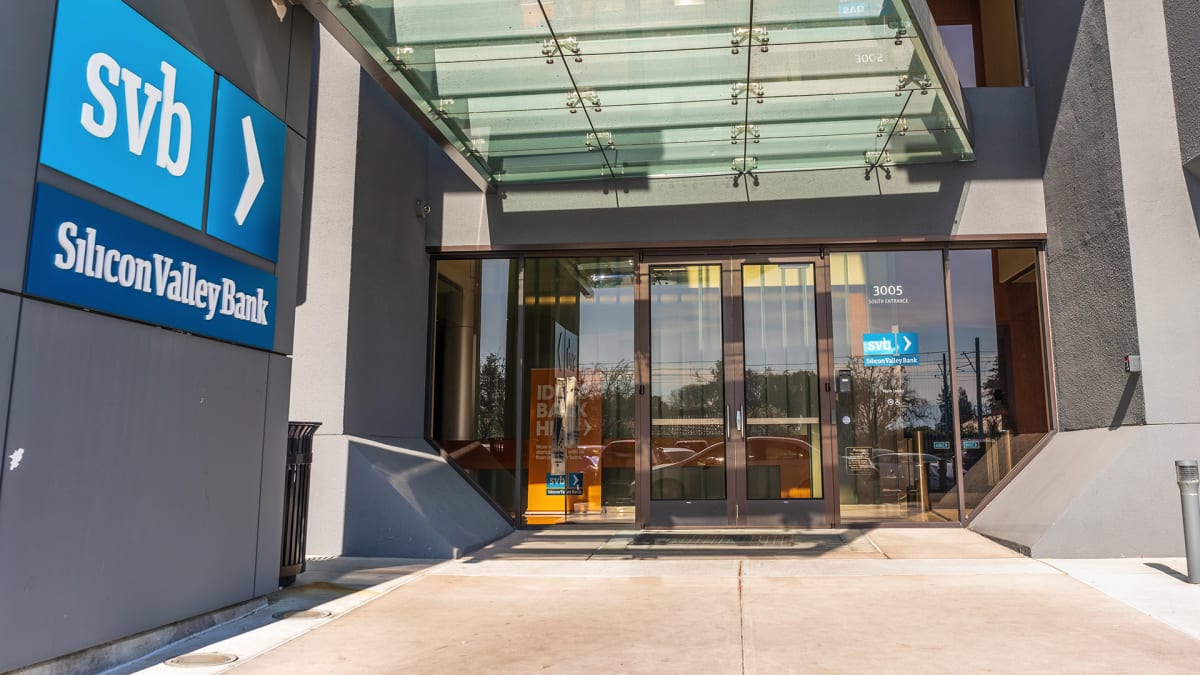
Global markets have been holding their breath since Silicon Valley Bank was shut down on March 10 by regulators.
Investors wonder if there will be a contagion. Are there any other banks that will follow? At the same time, behind the scenes, regulators scramble to prevent many startups and small businesses that were SVB customers from running out of the cash they need to pay their employees and suppliers and continue to operate.
The Santa Clara, Calif.-based bank was the go-to lender for startups whose operations it supported.
It was a central player in the innovation economy, by providing specialized financial services, industry expertise, a valuable network, and a strong reputation to startups. SVB also offered a range of financial services, tailored specifically to the needs of startups, such as venture debt, corporate banking and asset management. These services are designed to help startups manage their finances, optimize their cash flow and scale their businesses.
'We Found Our Enron'
For Michael Burry, the hedge fund manager who became famous and a legend of Wall Street for betting on the subprime mortgage collapse that sparked the 2008 financial crisis, Silicon Valley Bank (SIVB) is today's Enron.
"It is possible today we found our Enron," Burry posted on Twitter on March 9, a day before the regulators shut down the bank.
Burry deleted, as he often does, the tweet. The comparison of SVB to Enron is interesting. The energy broker filed for Chapter 11 bankruptcy in 2001, after an accounting scandal. Enron on Oct. 16, 2001, announced its first quarterly net loss in four years, due to a special charge of $1 billion related to losses in two private funds Wall Street had never heard of.
The stock began an uninterrupted tumble. It was the beginning of the end for Enron. Six days later, the U.S Securities and Exchange Commission opened an investigation into Enron's accounting practices. It tried unsuccessfully to negotiate its takeover by rival Dynegy. In December 2001, running out of cash, Enron went bankrupt. Within weeks, Enron had lost all its credibility.
Created in 1983, Silicon Valley Bank, which presented itself as a "partner for the innovation economy,” offered higher interest rates on deposits than its larger rivals, to attract customers. The company then invested the clients' money in long-dated Treasury bonds and mortgage bonds with strong returns.
This strategy had worked well in recent years. The bank’s deposits doubled to $102 billion at the end of 2020 from $49 billion in 2018. In 2021, deposits increased to $189.2 billion.
'Next, We Find Our WorldCom'
But everything turned upside down when the Federal Reserve began to raise interest rates, which made existing bonds held by SVB less valuable. As a result, the bank had to make a $21 billion fire sale of its bonds at a discount, to cover withdrawals from its customers. In selling these bond positions, SVB had to take a significant loss of $1.8 billion.
Due to this loss, SVB suddenly announced that it needed to raise additional capital of $2.25 billion, by issuing new common and convertible preferred shares. This decision caused panic and a run on the bank. About $42 billion of deposits were withdrawn by the end of Mar. 9, according to a regulatory filing. By the close of business that day, SVB had a negative cash balance of $958 million.
In a swift move, the regulators shut down the bank on Mar. 10, making SVB the second-largest bank failure in U.S. history, after Washington Mutual in 2008.
Burry, whose bet against subprime mortgages was immortalized in Adam McKay's 2015 film "The Big Short”, believes that another major bank will fall after SVB. He calls this bank the WorldCom of our time.
"Next, we find our WorldCom," the founder of Scion Asset Management said on March 10. "Patience."
He did not provide any clues about which bank would be the new WorldCom, preferring to maintain the mystery that characterizes his tweets.
The news came as a thunderclap in the telecoms sector on June 25, 2002: WorldCom, the second largest long-distance operator in the United States, officially admitted having artificially inflated its profits by some $3.8 billion.
The scandal caused a mini storm on all the stock exchanges in the world and further depressed the whole technology sector. The shock waves also hit audit firm Arthur Andersen, already involved in the Enron scandal, which had audited the rigged accounts.
Caught in turmoil and overwhelmed by debt, the telecom giant went bankrupt barely a month after the revelation of the accounting manipulations. In total, more than $7.1 billion of profits was improperly recorded between 1999 and 2002.
The collapse of Enron, followed a few months later by that of WorldCom, shook world finance.







